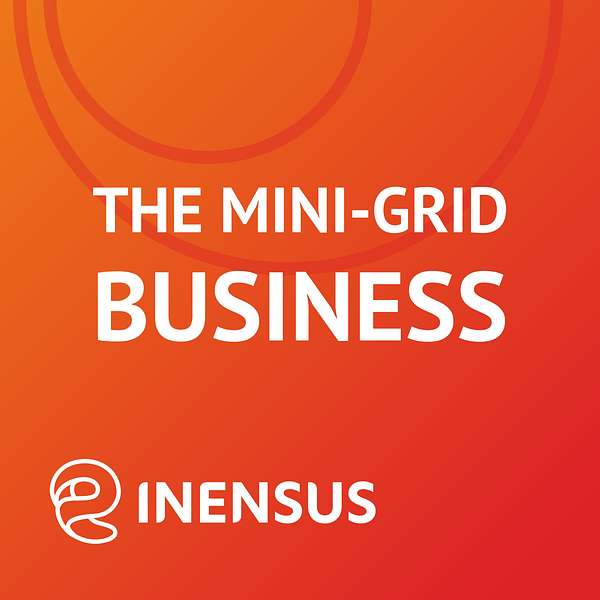
The Mini-Grid Business
Welcome to "The Mini-Grid Business," hosted by Nico Peterschmidt, CEO of the consultancy company INENSUS. With nearly two decades of experience working with over 100 mini-grid companies across Africa and Asia, INENSUS created a podcast, which becomes your gateway to the world of rural electrification through mini-grids.
In each episode, Nico and his guests – seasoned experts who have navigated the complexities of the mini-grid sector – offer candid insights based on real-life experiences. Whether they're individuals who have overcome significant challenges, policy makers shaping the sector’s frameworks and funding structures, or visionaries crafting the future of mini-grids, they all have unique perspectives to share.
From exploring successful pathways to profitability, to dissecting the reasons behind a company's struggles, "The Mini-Grid Business" delves deep into both theory and practice. It questions the accepted status quo of the mini-grid sector, aiming to unearth new perspectives or expose misunderstandings that need addressing.
This is a space for thought-provoking discussions, innovative ideas, and invaluable knowledge exchange.
Whether you are an industry veteran, a newcomer, or simply curious about the transformative potential of mini-grids, this podcast invites you to challenge your thinking, learn from others, and engage with a community that’s shaping a brighter, more sustainable future.
So, tune in, and enjoy "The Mini-Grid Business"!
LinkedIn: https://www.linkedin.com/company/inensus-gmbh/mycompany/
Twitter: INENSUS (@INENSUSgmbh) / X (twitter.com)
Visit www.inensus.com for more info.
The Mini-Grid Business
State of the Sector: Nico at INENSUS’ 20th Anniversary
Use Left/Right to seek, Home/End to jump to start or end. Hold shift to jump forward or backward.
Join us for a special episode featuring Nico’s State of the Sector address, delivered in Nairobi during INENSUS’ 20th anniversary celebration in September 2025. In this keynote, Nico reflects on two decades of impact, explores today’s challenges and opportunities, and shares a forward-looking vision for the future of the sector.
LinkedIn: https://www.linkedin.com/company/inensus-gmbh/mycompany/
Visit www.inensus.com for more info.
